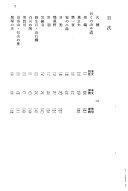Works

Oku no Hosomichi
Bashō MatsuoFrog Poem
Bashō MatsuoFamous Bashō Matsuo Quotes
Bashō Matsuo Quotes about dreams
Sick on a journey –
over parched fields
dreams wander on.
Basho, On Love and Barley: Haiku of Basho, London, 1985, p. 81 (Translation: Lucien Stryk)
Travelling, sick
My dreams roam
On a withered moor.
(Unknown translator)
Individual poems
“The summer grasses—
For many brave warriors
The aftermath of dreams.”
夏草や
兵どもが
夢の跡
natsukusa ya
tsuwamonodomo ga
yume no ato
Donald Keene, Travelers of a Hundred Ages, New York, 1999, p. 316 (Translation: Donald Keene)
The summer grasses—
Of brave soldiers' dreams
The aftermath.
Matsuo Bashō, The Narrow Road to Oku, Tokyo, 1996, p. 87 (Translation: Donald Keene)
Also: Classical Japanese Database, Translation #222 http://carlsensei.com/classical/index.php/translation/view/222
Oku no Hosomichi
“Sick on a journey,
my dreams wander
the withered fields.”
旅に病で
夢は枯野を
かけ廻る
tabi ni yande
yume wa kareno wo
kake-meguru
Bashō's last poem, written while he was dying of a stomach illness. (Translation: Robert Hass)
Sick on a journey –
over parched fields
dreams wander on.
Basho, On Love and Barley: Haiku of Basho, London, 1985, p. 81 (Translation: Lucien Stryk)
Travelling, sick
My dreams roam
On a withered moor.
Unknown translator
Individual poems
Bashō Matsuo Quotes about flowers
見るところ花にあらずと云ふことなし、
思ふところ月にあらずと云ふことなし。
Miru tokoro hana ni arazu to iu koto nashi,
omou tokoro tsuki ni arazu to iu koto nashi
Classical Japanese Database, Translation #172 http://carlsensei.com/classical/index.php/translation/view/172 (Translation: Reginald Horace Blyth)
Statements
Variant: There is nothing you can see that is not a flower;
There is nothing you can think that is not the moon.
Bashō Matsuo Quotes
Genjūan no Fu ("Prose Poem on the Unreal Dwelling") in Donald Keene, Anthology of Japanese Literature, p. 374 (Translation: Donald Keene)
Statements
“Who mourns makes grief his master.
Who drinks makes pleasure his master.”
Classical Japanese Database, Translation #41 http://carlsensei.com/classical/index.php/translation/view/41 of a Saga Diary excerpt (Translation: Robert Hass)
Statements
Context: It rains during the morning. No visitors today. I feel lonely and amuse myself by writing at random. These are the words:
Who mourns makes grief his master.
Who drinks makes pleasure his master.
“Every day is a journey, and the journey itself is home.”
Matsuo Bashō, Narrow Road to the Interior and other writings, Boston, 2000, p. 3 (Translation: Sam Hamill)
Oku no Hosomichi
Variant: The journey itself is my home.
“Sadly, I part from you;
Like a clam torn from its shell,
I go, and autumn too.”
Source: Narrow Road to the Interior
“Mountain-rose petals
Falling, falling, falling now…
Waterfall music”
Source: Japanese Haiku
“Even in Kyoto/Hearing the cuckoo's cry/I long for Kyoto”
京にても 京なつかしや 時鳥 kyou nitemo kyou natsukashi ya hototogisu Classical Japanese Database, Translation #55 http://carlsensei.com/classical/index.php/translation/view/55 (Translation: Robert Hass) Bird of time – in Kyoto, pining for Kyoto. Basho, On Love and Barley: Haiku of Basho, London, 1985, p. 43 (Translation: Lucien Stryk)
Individual poems
“Why so scrawny, cat?
Starving for fat fish or mice…
Or backyard love?”
Source: Japanese Haiku
Matsuo Bashō, Collected Haiku Theory, eds. T. Komiya & S. Yokozawa, Iwanami, 1951 (Unknown translator)
Statements
“How still it is!
Stinging into the stones,
The locusts' trill.”
静けさや
岩に滲み入る
蝉の声
shizukesaya
iwa ni shimiiru
semi no koe
Donald Keene, World Within Walls: Japanese Literature of the Pre-Modern Era, 1600-1867, New York, 1999, p. 89 (Translation: Donald Keene)
Oku no Hosomichi
“kojin no ato wo motomezu,
kojin no motometaru no tokoro wo motome yo”
Seek not the paths of the ancients;
Seek that which the ancients sought.
from 「柴門の辞」"Words by a Brushwood Gate" (also translated as "The Rustic Gate") (Unknown translator)
Statements
“Bird of time –
in Kyoto, pining
for Kyoto.”
Basho, On Love and Barley: Haiku of Basho, London, 1985, p. 43 (Translation: Lucien Stryk)
Even in Kyōto—
hearing the cuckoo's cry—
I long for Kyōto
Classical Japanese Database, Translation #55 http://carlsensei.com/classical/index.php/translation/view/55 (Translation: Robert Hass)
Individual poems
“I shall be unhappy without loneliness.”
Classical Japanese Database, Translation #41 http://carlsensei.com/classical/index.php/translation/view/41 of a Saga Diary excerpt (Translation: Robert Hass)
Statements
sabi wa ku no iro nari. kanjaku naru ku wo iu ni arazu. tatoeba, roujin no katchuu wo taishi senjou ni hataraki, kinshuu wo kazari goen ni haberitemo, oi no sugata aru ga gotoshi.
Classical Japanese Database, Translation #42 http://carlsensei.com/classical/index.php/translation/view/42 (Translation: Robert Hass)
Statements
“Spring passes
and the birds cry out—tears
in the eyes of fishes”
行く春や
鳥啼き魚の
目は泪
yuku haru ya
tori naki uo no
me wa namida
Matsuo Bashō, Narrow Road to the Interior and other writings, Boston, 2000, p. 4 (Translation: Sam Hamill)
Spring is passing by!
Birds are weeping and the eyes
Of fish fill with tears.
Matsuo Bashō, The Narrow Road to Oku, Tokyo, 1996, p. 23 (Translation: Donald Keene)
The passing of spring—
The birds weep and in the eyes
Of fish there are tears.
Donald Keene, Travelers of a Hundred Ages, New York, 1999, p. 310 (Translation: Donald Keene)
Oku no Hosomichi
“Soon to die
yet showing no sign
the cicada's voice”
やがてしぬ
けしきはみえず
蝉の声
https://haikutopics.blogspot.ca/2006/07/voice-of-animal-xx-no-koe.html https://www.tofugu.com/japan/japanese-poetry-crash-course/
Individual poems
Matsuo Bashō, Collected Haiku Theory, eds. T. Komiya & S. Yokozawa, Iwanami, 1951 (Unknown translator)
Statements
“The old pond:
A frog jumps in,—
The sound of the water.”
古池や
蛙飛び込む
水の音
furu ike ya
kawazu tobikomu
mizu no oto
Classical Japanese Database, Translation #64 http://carlsensei.com/classical/index.php/translation/view/64 (Translation: Reginald Horace Blyth)
At the ancient pond
the frog plunges into
the sound of water
Translation: Sam Hamill
Old pond,
leap-splash –
a frog.
Basho, On Love and Barley: Haiku of Basho, London, 1985, p. 58 (Translation: Lucien Stryk)
Breaking the silence
Of an ancient pond,
A frog jumped into water –
A deep resonance.
Matsuo Bashō, The Narrow Road to the Deep North and Other Travel Sketches, London, 1966, p. 9 (Translation: Nobuyuki Yuasa)
Individual poems
“I am that one person
Who eats his breakfast,
Gazing at morning nothing.”
Classical Japanese Database, Translation #174 http://carlsensei.com/classical/index.php/translation/view/174 (Translation: Reginald Horace Blyth)
Individual poems
Original: (ja) 朝顔に
我は飯食ふ
男かな
Original: (ja) asagao ni
ware wa meshi kû
otoko kana
